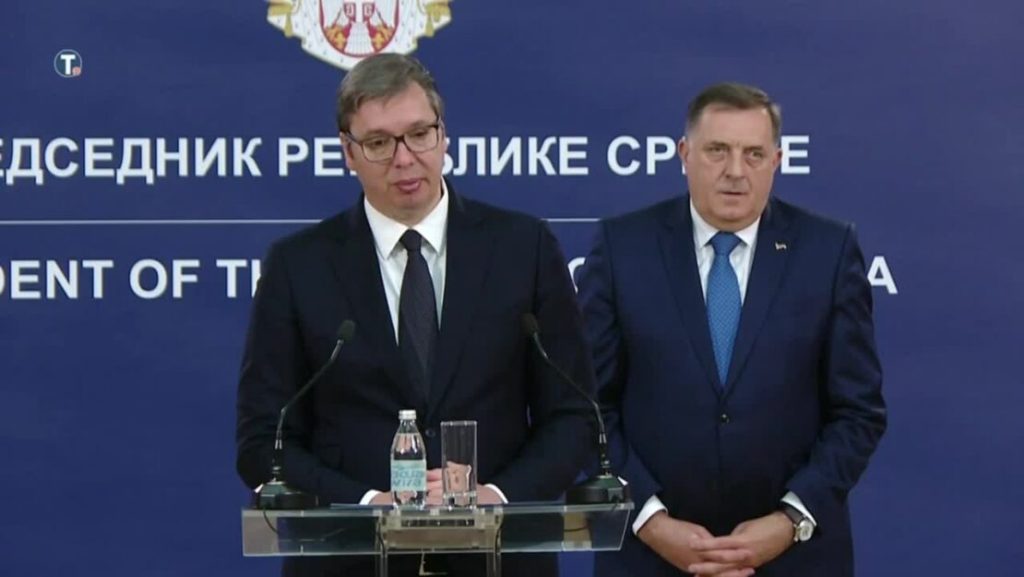
Please Follow us on Gab, Minds, Telegram, Rumble, Gab TV, GETTR
Serbian President Aleksandar Vucic has warned the international peace envoy to Bosnia and Herzegovina Christian Schmidt that his use of veto powers – strongly opposed by the Serbian leader – does not contribute to the country’s stability.
Vucic and Schmidt met in Belgrade on Thursday, two days after the BiH High Representative blocked a law on property passed by the parliament of Bosnia’s Serbian-majority entity which was considered another attempt by Bosnian-Serb leader Milorad Dodik to dissolve the country.
In a statement, Vucic expressed his “clear disagreement” with Schmidt’s use of veto power, and warned that “preserving peace” in the region is “crucial for the economic progress of the Western Balkans.”
“President Vucic expressed his clear disagreement with the latest decisions and the application of the Bonn powers, which he believes do not contribute to stability,” the statement noted.
On Tuesday, Schmidt repealed the law granting the Republika Srpska the right to administer half of the country’s real property, arguing that it threatens the BiH constitution and security. He confirmed that the right to distribute state property remains with the central parliament.
The constitution grants the High Representative special powers to guarantee the implementation of the Dayton Agreement signed in 1995 to end the Bosnian War.
Bosnia and Herzegovina is composed of Republika Srpska led by Dodik, and the Federation of BiH where Bosniaks and Croats live. On a national level, the country is led by a tripartite presidency, a bicameral parliament and a government. However, most power at local level stands with local governments and parliaments in both entities.
In recent years, Dodik has intensified attempts to dissolve the country and create an independent state for Bosnian-Serbs.
The Serb-entity’s local parliament passed a law in February separating the justice system from Bosnia’s national system.
This was part of Dodik’s plan to separate Republika Srpska’s military, police, and tax administration from the central Bosnian government. All these moves are unilateral and violate the Dayton Agreement.
The property law was also part of the same objective, paving the way toward succession for Republika Srpska.
It is not usual for the High Representative to impose laws overriding legislation passed by any of the two entities.
In November last year, Schmidt’s predecessor Valentin Inzko used his executive powers to criminalize the denial of genocide, shortly after the 26th anniversary of the Srebrenica Genocide committed by the Bosnian Serb Army of Republika Srpska.
The move infuriated Dodik, who announced a boycott of all major institutions in the country and vowed to intensify the dissolution of Bosnia and Herzegovina.
Vucic’s “clear disagreement” with Schmidt’s use of his veto power is in line with Dodik’s demand for the peace envoy post to be abolished.
Meanwhile, Dodik has vowed to disregard Schmidt’s veto and implement the property law.

